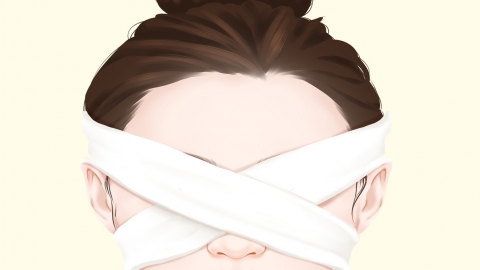Why does drinking alcohol cause temporary blindness?
Generally, temporary blindness after drinking alcohol may be caused by factors such as ocular blood vessel dilation and congestion, transient optic nerve ischemia, acute alcohol poisoning, induced hypoglycemia, or worsening of eye inflammation. If discomfort occurs, prompt medical attention at a reputable hospital is recommended. Detailed explanations are as follows:
1. Ocular Blood Vessel Dilation and Congestion
Alcohol can dilate ocular blood vessels, increasing blood flow and causing eye congestion. This congestion may compress the optic nerve, leading to temporary blindness. Immediately stop drinking, apply a cold compress to the eyes to promote vasoconstriction and relieve congestion. Additionally, rest in a well-ventilated area to accelerate alcohol metabolism.
2. Transient Optic Nerve Ischemia
Excessive alcohol consumption may cause blood pressure fluctuations and impaired blood flow in ocular vessels. The optic nerve may experience transient ischemia, resulting in functional impairment and temporary blindness. Control alcohol intake and avoid sudden postural changes after drinking to minimize the impact of blood pressure fluctuations on ocular blood supply.

3. Acute Alcohol Poisoning
Consuming large amounts of alcohol in a short time can lead to acute alcohol poisoning, which suppresses the central nervous system and affects visual center function, causing temporary blindness. Promptly induce vomiting to reduce alcohol absorption. If necessary, seek hospital treatment for intravenous administration of glucose injection, vitamin B1 injection, or naloxone injection to accelerate alcohol metabolism and alleviate poisoning symptoms.
4. Induced Hypoglycemia
Alcohol inhibits glycogen breakdown in the liver, leading to reduced blood glucose levels and insufficient energy supply to the brain and eyes, potentially causing temporary blindness. Consume carbohydrate-rich foods such as bread or rice before drinking. If hypoglycemic symptoms occur, oral glucose solution can be taken to rapidly increase blood sugar levels.
5. Worsening of Eye Inflammation
Individuals with existing eye conditions such as conjunctivitis or keratitis may experience exacerbated inflammation due to alcohol irritation. This worsens mucosal congestion and edema, affecting light refraction and nerve conduction, potentially leading to temporary blindness. Avoid alcohol consumption and follow medical advice to use eye drops such as tobramycin eye drops, levofloxacin eye drops, or acyclovir eye drops for treating ocular inflammation.
In daily life, cultivate the habit of moderate alcohol consumption and avoid excessive drinking. Pair alcohol consumption with light meals to reduce bodily irritation. Individuals with pre-existing eye diseases or a history of hypoglycemia should strictly limit alcohol intake. If temporary blindness occurs, seek timely medical evaluation to rule out severe ocular or neurological conditions.








